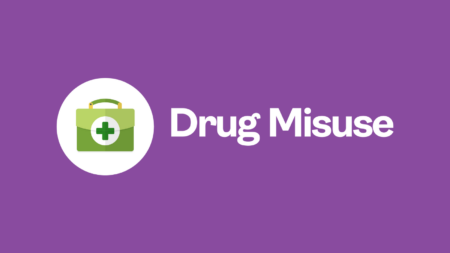We want to urge the Scottish Government and decision-makers to do all it can within its powers to tackle drug-related harms as a public health issue.
What does public health mean and what is a public health approach?
There are two main approaches to tackling drug-related harm: a criminal justice or public health approach.
In the UK, a criminal justice approach is used, so people who take drug are punished in the criminal justice system and made an example of to put other people off from taking drugs. There is evidence showing that this approach is ineffective as it increases stigma, pushes people into the criminal system, and generally increases harm.
On the other hand, a public health approach understands the systemic nature of drug harm. Taking a public health approach tackles the root causes of drug-related harm by focusing on measures of prevention through education and awareness raising, treatment, and reduction of harm.
Harms can be considered in terms of personal, family and community and society:
- Personal – physical health, mental health and involvement in crime
- Family and community – relationships with friends and family, seen as a criminal or addict, effect of stigma on the community
- Society – impact of organised crime, public finances currently used in the legal and health and social care systems may be better spent elsewhere if a public health approach was used
Current Situation in Scotland
Scotland has one of the highest drug death rates in the developed world, with 1330 drug-related deaths in 2021. Harmful drug use is a complex issue, deeply connected to poverty, the mental health crisis, the stigmatisation and criminalisation of drug users, and a lack of high-quality, accessible services to address the scale of the problem.
The Scottish Government announced an investment in services of £50 million of funding for the next 5 years, starting in 2021. However, the Scottish Government cannot make the complete move to decriminalisation as these powers are currently reserved to the UK Parliament at Westminster. There are still things the Scottish Government can do within its powers, such as deprioritisation within the Police, harm reduction services, and education.
Our campaign approach & calls
- The campaign priority is based on our Manifesto statements on treating drug harm as a public health issue.
- Staff consulted with expert organisations to determine different ways MSYPs could encourage decision-makers to support this approach. This was also used to figure out where MSYPs could be impactful to ensure meaningful contributions.
- SYP’s Conveners Group and CDG decided which approach the campaign should take and what specifics aspects of drug-related harms as a public health issue were a priority.
- A Campaign delivery group was created to lead on the work on this campaign priority with support from the Conveners Group.
- Other MSYPs will be included in designing a campaign action day for overdose awareness day at the Sitting. Alongside this the whole membership will receive training on tackling stigma.
Our campaign calls are to:
- Tackle drug-related harm as a public health issue and decriminalise people who take drugs to the maximum extent possible, such as by calling for Police Scotland to improve the de-prioritisation agreement.
- Encourage the use of people-first language and tackle stigma associated with people who take drugs.
- Urge decision makers at both the Scottish Government and Local Authorities to invest in protective factors that prevent young people developing problem drug use, such as youth work, mental health services, and extracurricular activities.
- Call for any future Scottish Human Rights legislation to ensure that people who take drugs are not discriminated against and their right to health and health care services is protected.
What action has SYP taken so far?
- In January 2022, SYP responded to a call for views from Douglas Ross MSP on his proposed Right to Recovery Bill after consulting with nine MSYPs. Whilst SYP supports the premise of this Bill, it suggested elements of the Bill are too vague and may create additional barriers for those who need help. We made recommendations on improving community-based recovery and eliminating barriers to accessing support as well as taking a co-design approach to ensure individuals and organisations with lived experience are at the centre of decision-making around this issue.
- MSYPs in the campaign delivery group engaged with experts in the sector as part of their training on drug-related harms and to help them design the work on the campaign priority.



